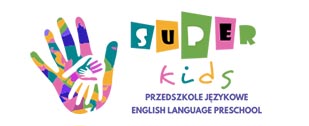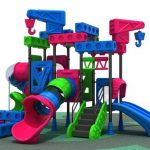-
Glottodidactics
Glottodidactics is an innovative method of teaching children how to read and write. As compared to the traditional method, it offers a completely different view of the language development. It ensures individual approach to every young child, allowing kids to develop language skills at their own pace. It stimulates cognitive and logical thinking and focuses on motivational sphere. Children taught according to this method use beautiful and correct Polish and, later on, they eagerly read books on their own. Glottodidactics provides an opportunity for every child to succeed in school and it facilitates a good start in life.
Education through fun
This method incorporates music, movement and folk dance into the teaching process to integrate children. It stimulates cooperation and triggers children’s activity, enhancing their music and movement expression. Physical exercises and music facilitate interpersonal communication and make educational activities more attractive.
Carl Orff’s method
This method is a combination of music, movement, dancing, singing, speaking, playing musical instruments and pantomime. Creating, playing and listening are crucial part of creative development. There is no place for being passive as the only way for understanding its purpose is through the active participation in the joint action of the whole group.
Method of developmental movement
Veronica Sherborne’s method of developmental movement is a system of exercises and physical activities designed specifically for young children. It is used worldwide as one of the most important factors of psychomotor development. By means of touch and movement it makes childrenaware of their own bodies and teaches how to control the space around them. It also helps to build emotional and social relationships.
“Children’s Mathematics”
The method was invented by Edyta Gruszczyk-Kolczyńska. Its objective is to facilitate intellectual development of children, especially to create mathematical concepts. In teaching math it is important to be aware of how preschoolers acquire knowledge. Mathematical concepts should not be conveyed through words, explanations or narrations. Preschoolers learn math through personal experience without theoretical explanations. It is the basis on which the children create their own concepts and skills, develop thinking on their own and practice resilience in case a problem arises. During such experiences the children should voice their opinions, define their findings, the purpose of performed activities and the expected outcome. The idea of commenting on their experiences helps children to focus and decide what is important in the process.



